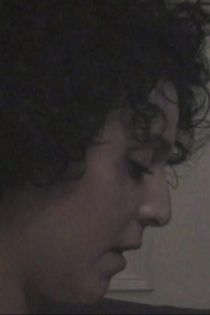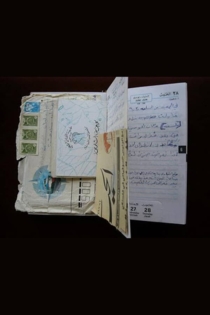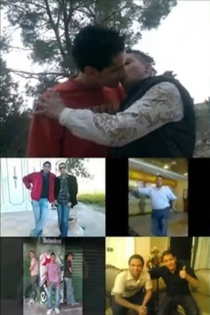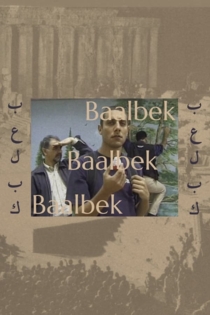
Akram Zaatari
2021Letter to a Refusing Pilot
Akram Zaatari
Louay Hanafi
Lebanese artist-filmmaker Zaatari conducts both an investigation and a stirring tribute to an act of resistance (or forbearance) that marked his childhood memories: the refusal of an Israeli pilot to bomb a boys' high school in south Lebanon in 1982.
Letter to a Refusing Pilot
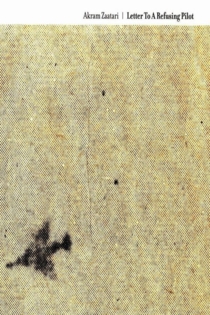
Tomorrow Everything Will Be Alright
Akram Zaatari
A late night online chat between two men who haven't met since the turn of the millennium leads to their reunion after ten years of separation. The film navigates against time with an unsettling use of communication, recording technologies and temporal gaps.
Tomorrow Everything Will Be Alright
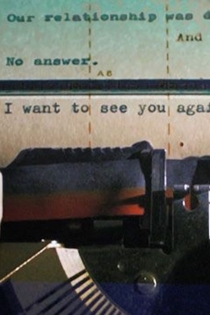
Hiya wa houa Van Leo
Akram Zaatari
This portrait of famed Armenian-Egyptian studio photographer Van Leo, whose career spanned some 50 years, is also a reflection on transformations in the practice of photography, from hand-developing to digital manipulation. As Zaatari puts it, "Van Leo used photography to display multiple images of himself, assuming different identities. At a time when nationalism was rising in Egypt, Van Leo was plotting, encouraging, and promoting multiple subjectivities.”
Her + Him Van Leo

Gift
Akram Zaatari
GIFT discusses the idea of public space : on a public beach, right across from a residential block, a young boy begs the filmmaker to let him join soccer players in order to appear on television. The faces of the passers-by staring at the camera and the supporter's shouts communicate the identity of a public space.
Gift
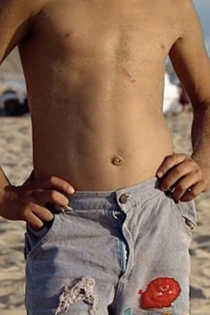
Al-ilka al-hamra
Akram Zaatari
RED CHEWING GUM recounts a story of separation between two men. It is a video letter that is set in the context of the changing Hamra, a formerly booming commercial center. It examines the tool of video and image making in relationship to consumption, age, desire and power as they all compare to one of the characters' attempt to capture, hence possess, fleeting time.
Red Chewing Gum
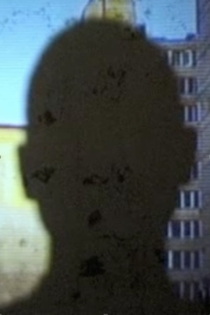
Image + Sound: Teach Me
Akram Zaatari
A six-minute film by Akram Zaatari from 1996. "By constructing new meaning out of recycled TV news footage, Zaatari creates a thought-provoking statement against violence." Filmmaker and video artist Akram Zaatari was born in Saida, Lebanon in 1966 and currently lives in Beirut. His art practice also includes photography, installation, critical writing and curating.
Image + Sound: Teach Me

Her + Him
Akram Zaatari
In 1998, Akram Zaatari interviewed Egyptian photographer Van Leo in Cairo. In 2001 he made the video Her + Him Van Leo and based it on the story of a woman who once entered Studio Van Leo and asked the artist to take pictures of her naked. At the time, Zaatari had access to a few of the woman's twelve pictures. In 2010 Zaatari came across the entire series showing "Nadia" undressing in twelve poses and expanded the original work into this re-edited, remastered version.
Her + Him
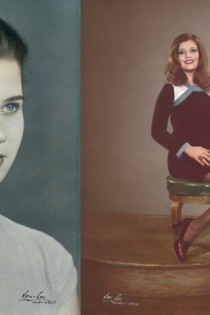
On Photography, People and Modern Times
Akram Zaatari
On Photography, People and Modern Times is a two-channel video installation that tracks photographic records that Akram Zaatari researched and collected for the Arab Image Foundation between 1998 and 2000. It is a meditation on the two lives of photographs: once in the hands of the people who cherished them, and then in an environment that secures their preservation. Cutting across temporal and geographic borders, the film probes the nature of humans’ relationships with photographs and highlights the limits of standard preservation.
On Photography, People and Modern Times

Image + Sound: Countdown
Akram Zaatari
Bassem Mughniyeh
An episode from a Lebanese TV series entitled "Image + Sound". Each episode in this series is based on paralleling TV news images alongside staged events. "Countdown" was shot in the Gemayzeh neighborhood in Beirut, Lebanon.
Image + Sound: Countdown

Reflection
Akram Zaatari
An eleven-minute film by Akram Zaatari from 1995. Memories and images of childhood are reflected both on the screen and in the small mirror that a young boy plays with. Filmmaker and video artist Akram Zaatari was born in Saida, Lebanon in 1966 and currently lives in Beirut. His art practice also includes photography, installation, critical writing and curating.
Reflection
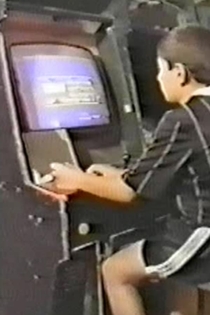
Lumiere
Akram Zaatari
This work deals with the discovery of light and of its power to reconstruct images. Through a boy who discovers the possibilities of framing and manipulating light with a mirror, the idea of making images appears in the daily life of the children living in the old streets of Saida. Reflected light becomes a knowledge that is transmitted from child to child and a source of friendship and curiosity.
Lumiere

Al Yaoum
Akram Zaatari
Unravels a dual journey – extroverted in place, introverted in memory. Beginning with a photograph taken in the 1950s by historian Jibrail Jabbour the film journeys further into Jabbour’s photographic archives, then into the filmmaker’s personal photo-diary of the Israeli invasion of his hometown, Saida. Zaatari probes that obscure compulsion to document one’s environs, in the everyday or when enduring a potentially fatal event.
This Day

Objects of War
Lamia Joreige
Zeina Arida, Lina Saneh
‘Objects of War’ is a series of testimonials on the Lebanese war. Each person chooses an object, ordinary or unusual, which serves as a starting point for his / her story. These testimonials while helping to create a collective memory, also show the impossibility of telling a single History of this war. Only fragments of this History are recounted here, held as truth by those expressing them. In ‘Objects of War’, the aim is not to reveal a truth but rather to gather and confront many diverse versions and discourses on the subject. ‘Objects of War’ started in 1999 assembling the testimonials of eleven persons. It was first shown in 2000 . It continued in 2003 with ‘Objects of War n°2’, recording seven additional testimonials. This time however, and since then, the recorded material is left unedited, shown in its integrity. The work of collecting and assembling these stories continued with ‘Objects of War n°3 & n°4’ in 2006 and ‘n°5 & 6’ in 2014.
Objects of War
